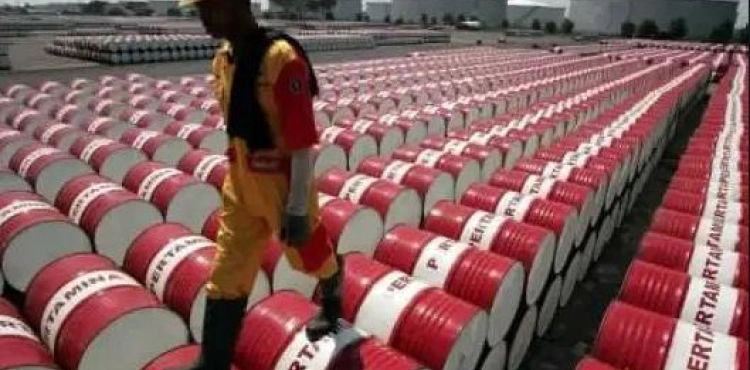Saudi Arabia will need at least a month to make up for about three million barrels of oil a day, about half of production halted after Saturday´s attack on its oil facilities, S&P Platts said. Economic Information Tuesday.
Oil prices rose on Monday after the attack on Saudi oil facilities, which caused a decline in supplies in the world, while uncertainty over world markets about when the wealthy kingdom can restore oil production of the same size again.
Saturday´s attacks resulted in explosions that set fire to the world´s largest oil processing plant, Abqaiq and nearby Khurais, where a large oil field is located in eastern Saudi Arabia, halting production of 5.7 million barrels per day, half of Saudi oil production, or 6 percent. Of global production. Washington blamed Iran for the attack.
"At this point, it seems that about three million barrels of Saudi crude supply will be cut for at least a month," the IEA, an independent global provider of energy price index data, said in a statement.
Saudi Oil Minister Prince Abdul Aziz bin Salman is due to hold a news conference on Tuesday evening, the first since the attacks, and is expected to provide an update on his country´s efforts to recover lost production.
Saudi Arabia produces 9.9 million bpd, of which 7 million bpd is exported, mostly to the Asian market.
"Saudi Arabia is likely to say it can supply its customers fully, although this is a challenge over time," S&P Platts said.
The threat of a long-term disruption to Saudi oil supplies underlines the lack of spare capacity in the market, estimated at 2.3 million barrels per day, mostly produced by Riyadh.
Reports said on Monday the kingdom would likely recover immediately up to 40 percent of lost production, but experts have offered conflicting views on how long Saudi Arabia will need to restore production to pre-attack levels.
The crisis has sparked fears of a dispute in the Gulf Arab region, which is holding a powder keg, and has raised questions about security at oilfields in the world´s biggest oil exporter, as well as for a number of oil producers in the region.
The London-based Capital Economics Research Center said global crude reserves, estimated at 6.1 billion barrels, should be able to compensate for lost production.
He said if Saudi Arabia could restore full production by next week, oil prices would drop quickly to around $ 60 a barrel.
But if its efforts continue for months and tensions persist, Brent crude could reach $ 85 a barrel.
Brent crude prices on Tuesday were more than 68 dollars a barrel, a slight decline after oil prices rose by 20% on Monday, marking the largest rise during the same session since 1991 and the Gulf War.
Iranian-backed Houthis claimed responsibility for Saturday´s attacks, but Washington said Iran was behind them, a charge Tehran rejected.












